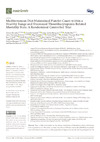Identificador persistente para citar o vincular este elemento:
https://accedacris.ulpgc.es/jspui/handle/10553/77801
| Campo DC | Valor | idioma |
|---|---|---|
| dc.contributor.author | Hernáez, Álvaro | en_US |
| dc.contributor.author | Lassale, Camille | en_US |
| dc.contributor.author | Castro-Barquero, Sara | en_US |
| dc.contributor.author | Ros, Emilio | en_US |
| dc.contributor.author | Tresserra-Rimbau, Anna | en_US |
| dc.contributor.author | Castañer, Olga | en_US |
| dc.contributor.author | Pintó, Xavier | en_US |
| dc.contributor.author | Vázquez-Ruiz, Zenaida | en_US |
| dc.contributor.author | Sorlí, José V. | en_US |
| dc.contributor.author | Salas-Salvadó, Jordi | en_US |
| dc.contributor.author | Lapetra, José | en_US |
| dc.contributor.author | Gómez-Gracia, Enrique | en_US |
| dc.contributor.author | Alonso-Gómez, Ángel M. | en_US |
| dc.contributor.author | Fiol, Miquel | en_US |
| dc.contributor.author | Serra Majem, Luis | en_US |
| dc.contributor.author | Sacanella, Emilio | en_US |
| dc.contributor.author | Razquin, Cristina | en_US |
| dc.contributor.author | Corella, Dolores | en_US |
| dc.contributor.author | Guasch-Ferré, Marta | en_US |
| dc.contributor.author | Cofán, Montserrat | en_US |
| dc.contributor.author | Estruch, Ramón | en_US |
| dc.date.accessioned | 2021-02-22T15:05:07Z | - |
| dc.date.available | 2021-02-22T15:05:07Z | - |
| dc.date.issued | 2021 | en_US |
| dc.identifier.issn | 2072-6643 | en_US |
| dc.identifier.other | Scopus | - |
| dc.identifier.uri | https://accedacris.ulpgc.es/handle/10553/77801 | - |
| dc.description.abstract | There is little information on the dietary modulation of thrombosis-related risk factors such as platelet count. We aimed to assess the effects of Mediterranean diet (MedDiet) on platelet count and related outcomes in an older population at high cardiovascular risk. In participants of the PREDIMED (PREvención con DIeta MEDiterránea) study, we assessed whether an intervention with a MedDiet enriched with extra-virgin olive oil or nuts, relative to a low-fat control diet, modulated platelet count (n = 4189), the risk of developing thrombocytosis and thrombocytopenia (n = 3086), and the association between these alterations and all-cause mortality (median follow-up time: 3.0 years). Although platelet count increased over time (+0.98·109 units/L·year [95% confidence interval: 0.12; 1.84]), MedDiet interventions moderated this increase, particularly in individuals with near-high baseline count (both MedDiets combined: −3.20·109 units/L·year [−5.81; −0.59]). Thrombocytopenia incidence was lower in the MedDiet interventions (incidence rates: 2.23% in control diet, 0.91% in MedDiets combined; hazard ratio: 0.44 [0.23; 0.83]). Finally, thrombocytopenia was associated with a higher risk of all-cause mortality (hazard ratio: 4.71 [2.69; 8.24]), but this relationship was attenuated in those allocated to MedDiet (p-interaction = 0.018). In brief, MedDiet maintained platelet counts within a healthy range and attenuated platelet-related mortality in older adults at high cardiovascular risk. | en_US |
| dc.language | eng | en_US |
| dc.relation.ispartof | Nutrients | en_US |
| dc.source | Nutrients [eISSN 2072-6643], v. 13, 559, (Febrero 2021) | en_US |
| dc.subject | 320501 Cardiología | en_US |
| dc.subject | 320502 Endocrinología | en_US |
| dc.subject.other | Mediterranean Diet | en_US |
| dc.subject.other | Platelet Count | en_US |
| dc.subject.other | Prevention | en_US |
| dc.subject.other | Randomized Controlled Trial | en_US |
| dc.subject.other | Thrombocytopenia | en_US |
| dc.title | Mediterranean Diet Maintained Platelet Count within a Healthy Range and Decreased Thrombocytopenia-Related Mortality Risk: A Randomized Controlled Trial | en_US |
| dc.type | info:eu-repo/semantics/Article | en_US |
| dc.type | Article | en_US |
| dc.identifier.doi | 10.3390/nu13020559 | en_US |
| dc.identifier.scopus | 85100548480 | - |
| dc.contributor.authorscopusid | 55916184000 | - |
| dc.contributor.authorscopusid | 35798512000 | - |
| dc.contributor.authorscopusid | 57202727634 | - |
| dc.contributor.authorscopusid | 57202569537 | - |
| dc.contributor.authorscopusid | 55510803900 | - |
| dc.contributor.authorscopusid | 36487707800 | - |
| dc.contributor.authorscopusid | 57214783328 | - |
| dc.contributor.authorscopusid | 57217866556 | - |
| dc.contributor.authorscopusid | 7004605575 | - |
| dc.contributor.authorscopusid | 7003357665 | - |
| dc.contributor.authorscopusid | 6507771144 | - |
| dc.contributor.authorscopusid | 57202571697 | - |
| dc.contributor.authorscopusid | 7004308784 | - |
| dc.contributor.authorscopusid | 7005315313 | - |
| dc.contributor.authorscopusid | 35596972100 | - |
| dc.contributor.authorscopusid | 7003691118 | - |
| dc.contributor.authorscopusid | 13612519200 | - |
| dc.contributor.authorscopusid | 7003570538 | - |
| dc.contributor.authorscopusid | 55110459200 | - |
| dc.contributor.authorscopusid | 6602419864 | - |
| dc.contributor.authorscopusid | 7005989830 | - |
| dc.identifier.eissn | 2072-6643 | - |
| dc.identifier.issue | 2 | - |
| dc.relation.volume | 13 | en_US |
| dc.investigacion | Ciencias de la Salud | en_US |
| dc.type2 | Artículo | en_US |
| dc.description.numberofpages | 13 | en_US |
| dc.utils.revision | Sí | en_US |
| dc.date.coverdate | Febrero 2021 | en_US |
| dc.identifier.ulpgc | Sí | en_US |
| dc.contributor.buulpgc | BU-MED | en_US |
| dc.description.sjr | 1,287 | |
| dc.description.jcr | 6,706 | |
| dc.description.sjrq | Q1 | |
| dc.description.jcrq | Q1 | |
| dc.description.scie | SCIE | |
| dc.description.miaricds | 10,6 | |
| item.fulltext | Con texto completo | - |
| item.grantfulltext | open | - |
| crisitem.author.dept | GIR IUIBS: Nutrición | - |
| crisitem.author.dept | IU de Investigaciones Biomédicas y Sanitarias | - |
| crisitem.author.dept | Departamento de Ciencias Clínicas | - |
| crisitem.author.orcid | 0000-0002-9658-9061 | - |
| crisitem.author.parentorg | IU de Investigaciones Biomédicas y Sanitarias | - |
| crisitem.author.fullName | Serra Majem, Luis | - |
| Colección: | Artículos | |
Citas SCOPUSTM
8
actualizado el 08-jun-2025
Citas de WEB OF SCIENCETM
Citations
8
actualizado el 01-feb-2026
Visitas
96
actualizado el 10-ene-2026
Descargas
2
actualizado el 10-ene-2026
Google ScholarTM
Verifica
Altmetric
Comparte
Exporta metadatos
Los elementos en ULPGC accedaCRIS están protegidos por derechos de autor con todos los derechos reservados, a menos que se indique lo contrario.
